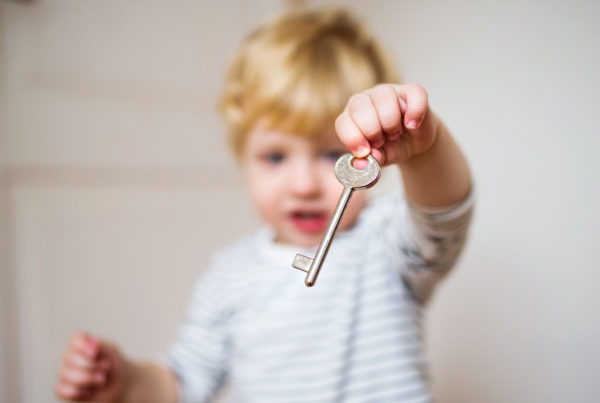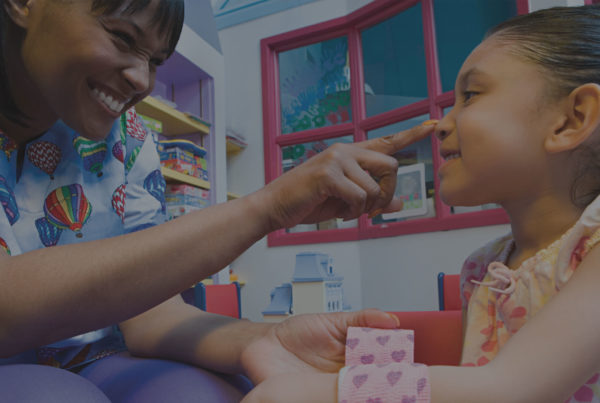Editor’s Note: In 2011, Melanie Hempe uncovered the dark world of video game addiction when her oldest child dropped out of college due to his gaming addiction. She set out to help other struggling families; to her surprise, more than 100 parents attended her first meeting at a local school – evidence that families everywhere were unprepared for the tidal wave of technology that was flooding their homes, and that children and teens were being lost in the world of video games and smartphones. Most importantly, parents were looking for answers. From that meeting, Families Managing Media (FMM) was born. In this article, she reflects on what she has learned over the last seven years…
Many parents are at a difficult crossroads regarding which screens to allow in their kids’ lives. But, this decision doesn’t have to be as hard as we make it.
Imagine no more arguing with your kids over screen time, no meltdowns about losing phone privileges, and no secret gaming until 3 a.m.
Next, imagine how peaceful it would be to never worry about what your kids are posting or seeing on social media. Imagine how stress-free it would be for them never to worry about their “personal brand.” Wouldn’t it be nice to move past the daily screen drama in your home?
I’ve heard all the reasons parents have for giving their kids personal screens:
“Screens are part of today’s youth culture, they make our kids smart and we need to teach them how to manage them.”
“Teens will be social outcasts without their games and social media. Plus, we moved recently, and it is the only way for them to stay connected with their friends.”
“I have to let him play his video game; he is very gifted, and he is going to be a game designer when he grows up.”
“Only overprotective parents restrict screens; if you do, your teen will overuse them in college.”
I now know that all these reasons are just dangerous myths.
We have made many screen mistakes in our home. Since our family has lived through our oldest son dropping out of college due to a gaming addiction, we made some changes with our second child, and now our youngest twins. They get to reap the benefits our newfound parenting knowledge from the mistakes we made with our oldest. But beyond just learning through trial and error, getting our arms around this issue has required us to learn about the long-term physical and emotional effects of screens on child development.
Here are a few things that stand out:
- Screens are not a neutral activity for kids. Games and social media are designed to stimulate the “feel good” brain chemicals that kids will continue to crave. These chemicals are the same ones that lead to addiction. Over time, our children’s developing brains will rewire themselves to need these chemicals more and more, putting into motion an addiction pathway in their brains.
- It takes 25 years for a child’s executive function to mature. I was setting my kids up for failure by expecting them to manage their screen use in a healthy way – a task that they were not physically capable of doing. Don’t confuse “high grades” or “smart kids” with being mature. Maturity takes time to develop in real life and cannot happen through a screen.
- Face-to-face communication and social skills are more important for our child’s future success than screen skills. It is difficult (if not impossible) to teach these life skills when your child’s first love is a screen.
- Our screen culture is here to stay but childhood isn’t. Once that short window of time and great potential is closed in your child’s life, it can never be opened again. You don’t get a “redo!”
- Early exposure to adult themes and content will form lasting emotional scars on a child. As parents, we want to be the first ones to shape their hearts and values so we must be the first ones to guide, educate and protect them.
- According to research, social media makes the user more anxious, stressed and depressed. Teens are less stressed without video games or social media, which are simply a form of distracting entertainment. The evidence suggests, after a few months of a screen detox, teens are happier and less anxious as well as more independent, confident and connected to their families.
Parents have a much higher calling than to lower the bar to keep up with every cultural norm. If we want the best for our children, then why do we keep putting the worst our culture has to offer in their pockets hoping they won’t be harmed? It is time to put your children’s devices down—because they can’t—and help them reclaim the life they are losing. Do not allow a screen-stressed home environment or anxious children to become the new normal for your family.
Instead, with a coach’s heart, go back to the basics: study, evaluate and learn from mistakes. A good coach knows when it is time to make changes and they are not afraid to make the call. They also know that it will take plenty of hard work and determination to get their team back on track. Put on your parent-coach hat and adjust your game plan with confidence:
- If video games are causing conflict in your home, throw them out! Today’s video games are much more addictive and harmful than the video games of the past.
- If you gave that smartphone too early, acknowledge your mistake, and take it away or replace it with a less addictive basic phone (There are good reasons why you have to be 18 to even buy a smartphone from any phone company.). Give their phone back to them when you are confident that their life-skills are strong and they are more mature.
- Finally, show your children how to have in-person social lives, real hobbies, and most importantly, a balanced childhood that includes plenty of free play, creativity, screen-less down time, and connections with your family and friends. They will have technology the rest of their lives, give them the gift of an uncluttered childhood to enjoy for now.
Today when our boys come home from school, I will not hear about their new level on a video game (yes, their peers play during classes at school). They will not be crushed over the middle school social media drama. They will not run up to their room to watch two hours of mindless YouTube videos, and they will not slip into a phone-coma as they keep up their Snap-Streak. Best of all, there will be no arguments and no screen negotiating on my end; thankfully, those days are history.
Instead, there will be lots of conversation in the kitchen. They will be hungry, they will have mud on their shoes, and they will be very loud as they explain all the stories from the day about who was the fastest at cross country and about a particular girl who sat with them at lunch (“Mom, FYI, she isn’t my girlfriend. She’s ‘cool’—she likes football.”). They will jump on their bikes and head out to gather as many neighborhood friends as they can for a quick game of cul-de-sac football before heading to their baseball game.
When they get home tonight, they will throw in a load of their laundry, and finish their homework quickly (because there is no group text pinging for their attention). They might complete the crossword puzzle they started this morning or read a chapter in their new favorite book. Then they will fall into bed to get that 9 hours of sleep their adolescent brain needs.
While there is a lot to be gained in our adult world when technology is used responsibly as a tool, there is much to be lost in our kids’ world when we allow it to crowd out their childhood. Maybe it’s time for parents to rethink whether this is one of those times when less really is more. We’re so glad we did.






